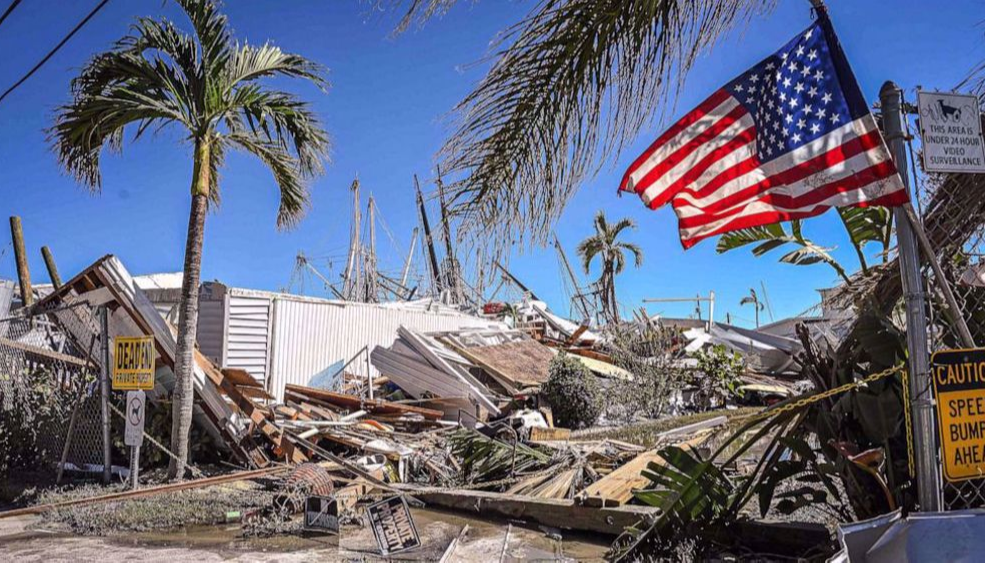
Part of a destroyed mobile home park is pictured in the aftermath of Hurricane Ian in Fort Myers Beach, FL (Photo by AFP)
Fort Myers, October 3 (RHC)-- Hurricane Ian’s death toll soared to at least 80 in the U.S. state of Florida, as rescuers searched for survivors among the ruins and authorities in South Carolina began assessing the damages caused from the calamity.
The hurricane has been categorized as a Category 4 storm and is being called as one of the most powerful storms ever to hit the United States, it has affected millions over the week. “We watched it hit the pier and saw the pier disappear,” said Wilder. “I’ve seen quite a few storms and this one was wild … We had a front-row seat,” said Eddie Wilder.
With submerged neighborhoods caused by flooding, washed-out bridges, isolated people to debris from destroyed properties, the storm has wiped out power supply of the state as more than 900,000 customers remained powerless on Saturday night.
In North Carolina and Virginia, more than 45,000 people remained without power, tracking website poweroutage.us said Saturday.
According to reports, the death toll could be far higher as additional fatalities were still emerging. US media tallied more than 70 deaths either directly or indirectly related to the storm, mostly from drowning but others from the storm’s tragic aftereffects.
In Florida's Lee County, with the help of boats, rescuers and citizens are still saving the last trapped inhabitants of the small island of Matlacha. More than a thousand people have been rescued along Florida’s southwestern coast, confirmed Daniel Hokanson, head of the National Guard.
"Nobody's telling us what to do, nobody's telling us where to go." "The evacuation orders came in very late," said resident Chip Farrar. Another resident, Pete Belinda said that his home was "just flipped upside down, soaking wet, full of mud."
A firm specializing in property analysis named, CoreLogic said, wind-related losses for residential and commercial properties in Florida could cost insurers up to $32 billion, while flooding losses could reach $15 billion.
"This is the costliest Florida storm since Hurricane Andrew made landfall in 1992," CoreLogic's Tom Larsen said. According to another firm related to disaster modelling, Karen Clark & Co., the hurricane has caused has likely caused “well over $100bn’’ in damage, including $63bn in privately insured losses.
Earlier, President Joe Biden had warned that Hurricane Ian could be the deadliest hurricane in Florida history. House Press Secretary Karine Jean-Pierre confirmed through her tweet that Biden along with his wife, Jill are due to visit the heads to Florida on Wednesday to survey the devastation. But they will first head to Puerto Rico on Monday to survey the destruction from a different storm, Hurricane Fiona, which struck the U.S. colony last month.

